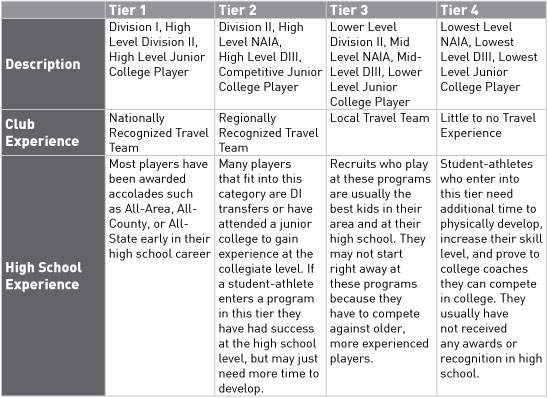Originally Posted by toolsofignorance:
Is there a way to know what level a player can play at? I wish there was a calculator that you could input a players stats; ie position velocity, pop time, 60 time, exit velocity, height, weight and GPA/ACT. Just want to know what level to start looking at D3,D2, or D1. Of course he wants to play division 1. Maybe there is a thread that I have missed that covers this.
IMO, you're asking the right question, at the right time.
I've actually thought about putting together some kind of questionnaire that I could use to help some of the local kids with this process. Not a calculator, but an inventory of the important information that would help guide a kid in the right direction.
The items that you listed are all important, but the one variable that took me the longest time to appreciate is athleticism. Pitching is its own category, but most position players at major and mid-major DI schools are extremely athletic. In general, these are mostly very naturally strong and fast athletes. (By "naturally" I am not saying that they don't work at it, just that they're starting from a better foundation.) In high school, these guys stand out from the crowd. They jump higher, move quicker, and generally make athletic movements look easier. Many were, or could have been, a star QB/RB/WR on their HS football team.
Do you know any baseball families who have been through the process? A kid who's played high level DI or any level of pro baseball might be able to give you a good evaluation. Or an MLB scout? Some are very generous with their time and will give you an objective opinion. Be prepare for Insist on brutal honesty. Anything less only makes the process more difficult.

